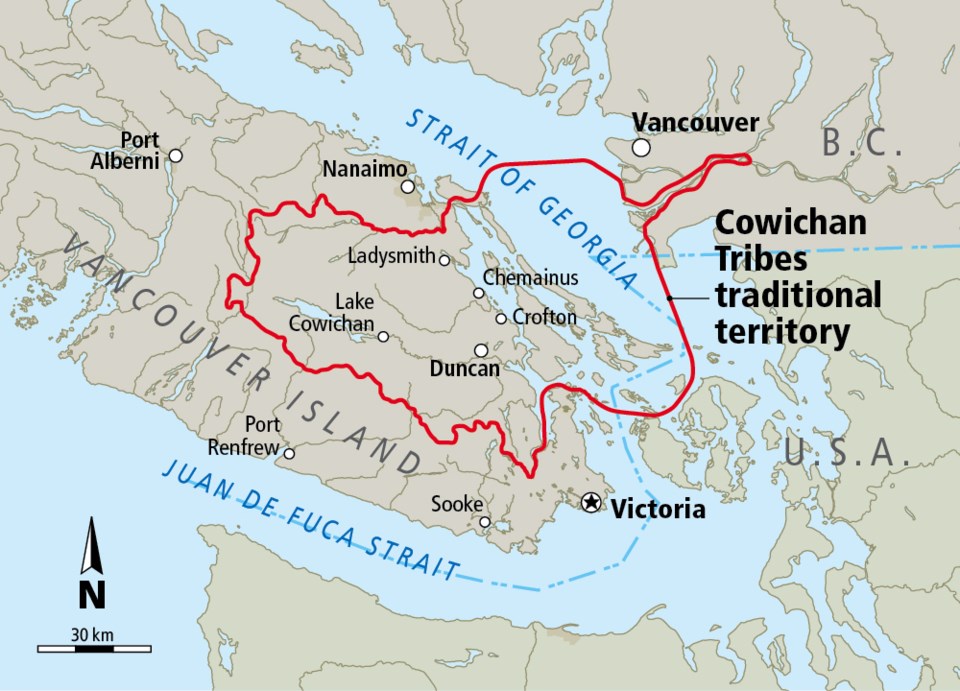An attempt to shift management of the Cowichan Tribes’ band lands from the federal government to the First Nation will not go forward because not enough people cast ballots on the issue.
Cowichan Tribes needed 737 yes votes to pass the land code but only 727 eligible members registered to vote. Of those, 546 voted in favour of the land code and 159 voted against. There were 10 rejected ballots.
The Tribes spent more than two years developing the land code, holding information sessions and answering questions online and in-person.
The First Nation has about 5,000 members, with nearly half living on nine reserves in the Cowichan Valley. Other members are spread across Vancouver Island, B.C., Washington state and elsewhere. Cowichan Tribes has 375,000 hectares of traditional territory.
Several Island First Nations have adopted land codes that have led to economic development projects — such as the solar and greenhouse program in T’souke and the Spirit Bay development in Beecher Bay.
“It’s disappointing,” said Chief William (Chip) Seymour. “I was really looking forward to getting away from the Indian Act. It’s a small step but at least in that direction.”
Seymour said council and the land code committee worked to reach every member and inform them about the land code ratification process.
They sent mailouts, set up online, absentee and advance voting — giving away iPads, bikes and phones as incentives to register. After the two official voting days in May, only 500 votes had been cast. The First Nation decided to add a day of voting on June 21, National Aboriginal Day, but still did not get enough participation.
Patti Williams, a Cowichan Tribes member, said she did not vote but it was for a reason. “I knew if I voted, whichever way, then I would be counted and it could pass.”
Williams operates Salish Sea Support Services, a volunteer-based organization that helps members with legal and government processes. She described it as “two grandmothers doing research” to help people in poverty.
Williams said from her conversations with members and the discussions on social media, she thinks the community did not participate in the vote because members were not ready for a land code to be introduced.
“There are other stalemates and issues that need to be cleared up first,” she said. “How will they manage everything?”
Seymour said he will speak with council about the possibility of holding another vote to ratify the land code.
“I do know we want to continue and work toward this,” he said.
Ken Cossey, a Shawnigan Lake-based community planner who assisted Cowichan Tribes on the land code project, said it’s not uncommon for the process to take more than one round of voting.
“The main thing is the second time around, you’ve already built a foundation of information and dialogue,” he said.



